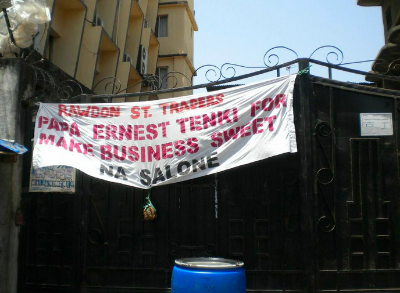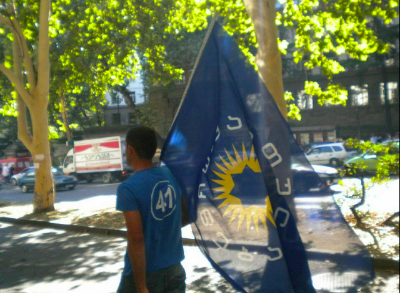Research Overview
My current manuscript examines three states that invited international scrutiny of practices that violate human rights or good governance norms, but are integral to their rulers’ management of patronage-based authority.
Leaders in Uganda, Sierra Leone, and Georgia invited external investigation into human rights or good governance practices despite their dependence on violating those same norms to maintain domestic order. Drawing on fieldwork in each country, I argue that these states invited outside attention in order to manipulate it and, where successful, did so through informal institutions.
I find that the state system is heterogeneous, and that patronage states, often located at the global periphery, face distinct challenges and carry out different tasks from other states. Global pressures for rights-based distribution abound, but even peripheral states can manipulate these pressures to their advantage.
Second, rulers who attempt this kind of manipulation are enabled rather than constrained by their embeddedness in patronage networks, as they may use these to become less legible to outsiders.
Finally, more powerful actors are often willing participants in the charade. When the weaker state becomes an important symbolic character in their global project, they tend to overlook violations in order to keep up appearances.
My dissertation committee was comprised of Dr. William Reno (Chair), Dr. James Mahoney and Dr. Ian Hurd.
Publications
"Rebranding state power: Uganda’s strategic use of the International Criminal Court" (Development and Change 46(2), February 2015)
This paper looks at Uganda’s self-referral to the International Criminal Court. I argue that the Government of Uganda invited the ICC’s intervention in response to growing international criticism of its military’s human rights record, in the hopes of shaping investigative processes and rebranding itself as norm-compliant. The gamble paid off due to the ruling regime’s robust and pervasive patronage network and symbolic importance to the Court.
"How not to be seen: Legitimacy, power, and the international politics of invisibility" (Global Governance 22(2), May 2016)
This paper challenges dominant approaches to state socialization to international norms through an examination of post-war Sierra Leone’s Truth and Reconciliation Commission. I find that highly vulnerable states like Sierra Leone, both internally fragile and internationally powerless, have incentives to adopt a foreign policy of invisibility, signalling acceptance of international norms before socialization processes can take hold. The result is a rapid but superficial adaptation that not only reduces international pressures but adds contradictory content to the meaning of compliance system-wide.
"Beyond Robert Jackson: Post-colonial realities and the patronage state" (International Politics 54(2), March 2017)
This paper develops the concept of the patronage state. It outlines both the material incentives legal sovereignty gives to even the most internally fragile states, but also the state-systemic responsibilities they receive in return. The patronage state is essentially deputized to defend state primacy against non-state challengers to the status quo.
Other Papers
"Caught in the legend: Power and narrative at the global periphery"
This paper examines the mechanisms by which powerful countries end up catering to the needs of peripheral regimes despite their rhetoric to the contrary. In fact, it is precisely that rhetoric and the need great powers have for legitimating mythology that binds them to laxity when dealing with their supposed success cases. Georgia-US relations throughout Mikheil Saakashvili's Presidency provide an illustration.
"‘If you’re so evil, eat this kitten!’ Unconventional leverage at the global periphery"
The world’s poorest countries have a marketable resource only they can offer for sale: testimony of global heavyweights’ good and generous dispositions towards the vulnerable. These testimonies are essential for supporting the myths which the powerful use to justify their activities abroad: democracy-promotion, anti-terrorism or protection of national minorities. If a peripheral state becomes an important symbolic character in a powerful actor’s mythology, it can create space in which to violate norms, even where these directly undermine the myth that protects them.
“The great masquerade: the global periphery and the myth of statehood.”
This paper challenges the assumption that the state system is not functionally differentiated, but also finds the system's stability depends on pretending all states are more or less the same. In granting sovereignty to former colonies, often governed by de-territorialized patronage rule, they also handed over one of two tasks necessary to preserve the sovereign territorial state as the "natural" governing unit worldwide. Powerful states establish rules and norms that give states privileged status and a range of powers, and in the contemporary state system the periphery is responsible for containing non-state challengers to state primacy, albeit with international assistance. I examine two distinct time periods: the Allied intervention into the Russian civil war, and contemporary rebellions in Africa. The comparison shows a stabler post-colonial world, but one in which pretending provides the glue, whether that means pretending not to know about atrocities, or pretending these more newly baptized sovereigns are indeed states as we know them.
For more on my research background visit my Contact & CV page.

